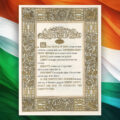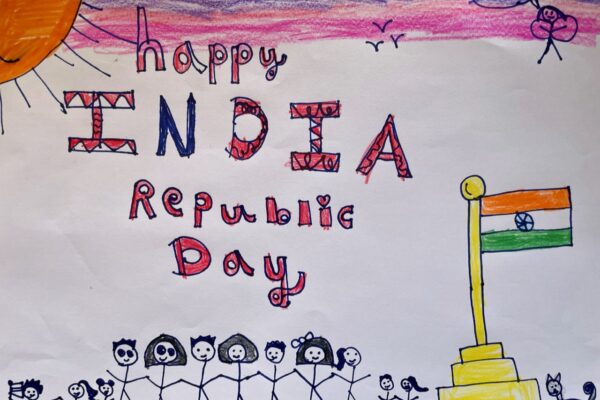
They always say, “Timing is everything.” I don’t know who “they” are, but I have a serious bone to pick with them. Because, if timing really is everything, then I’ve been handed a slightly broken clock.
I’m fourteen, and I go to an ICSE school that’s full of blackboards, timetables that feel like jigsaw puzzles, and exams that whisper “boo” at you in your sleep. But just beyond the horizon, something shiny is coming. The New Education Policy, with new rules, better tools, and if the rumours are true, making learning, fun!
But by the time it finally arrives in it’s full glory, I’ll be long gone from school, waving goodbye with my report card in one hand and a tired smile on my face. I wasn’t born too late. I was born just a bit early. So, let me take you through this twist of fate, with some losses and some gains.
The Gains of the Old Guard
Let me start by being honest. The old system wasn’t all terrible. It had its quirks. Like the way we memorise facts, just because someone, somewhere, decided that “Mughal Dynasty dates” are more important than sleep.
We’ve recited textbook definitions like mantras, hoping that if we chant “photosynthesis” three times faster, the answer might magically appear during the exam. “Yatha Shiksha, Tatha Buddhi”—As is the education, so is the intellect. And I guess our intellects are shaped like perfectly highlighted long answers and index cards.
Our days are a blur of school, tuitions, hobbies, family functions, internal crises, and the occasional panic attack when you realize the exam is tomorrow and not next week. We don’t just study. We train like gladiators.
And believe it or not, there is a strange thrill in trying to guess the question paper. Will the examiner love paragraphs or bullet points today? It’s like placing a bet in a race and hoping you win. That’s how we learned resilience, by surviving the multiple choice roulette and the art of writing long answers at short notice.
What I’ll Never Know (Thanks to Mom’s Timing)
Now let’s talk about them, the lucky ones, the future kids who’ll learn coding in school, study art and math in the same breath, and choose subjects like a buffet at a fancy restaurant. Multidisciplinary learning, they call it. Meanwhile, we’ve been stuck with rigid streams like Science vs. Arts—as if learning had teams and jerseys.
The NEP wants students to explore, think and create. No more ten-point answers that look like grocery lists. Instead, they allow minds that wonder why and how, not just what. Honestly? My brain feels robbed of a chance to be curious, because curiosity will not kill the cat.
NEP wants to promote regional languages, value ancient Indian knowledge, and integrate it with modern science. We could have read about gravity not only in Newton’s laws but also in Bhaskaracharya’s Siddhanta Shiromani!. My generation got a single window. Now, they’re building a glasshouse with a skylight.
My mental health feels like it signed the wrong contract. NEP talks about less comparison, more continuous assessment. No high-stakes finals breathing down your neck. Where was this magical unicorn when I was up at 2 a.m. whispering, “Please, God, let the 3-mark question be kind”?
Sometimes, I feel like Arjuna on the battlefield of Kurukshetra. Confused and a little bit scared. Trying to understand whether to hold on to what I’ve been taught or believe in something I’ll never get to experience. But even in the chaos, the old system did give me something—grit. It gave me discipline, a slightly sarcastic humour, and a stubbornness that even ten math tests couldn’t break.
The Bridge Generation
To all my fellow tenth graders standing on this weird, wobbly bridge between old and new—I see you.
We’re the in-betweens. We are the generation that still uses dictionaries, before Google auto-fills, our thoughts. We are the kids who code while dreaming about reading Shakespeare, the ones who know what “by heart” means, but who secretly “think deep.”
And one day, when our cousins are submitting art portfolios alongside their chemistry projects for their dual degrees, we’ll smile. We’ll say, “Back in my day…” and maybe even feel a little proud; because we survived before the winds of change arrived. And all that matters is —
कर्मण्येवाधिकारस्ते मा फलेषु कदाचन।
मा कर्मफलहेतुर्भूर्मा ते सङ्गोऽस्त्वकर्मणि॥ (Bhagavad Gita 2.47)
Do your duty, without attachment to results. Don’t let the outcome decide your worth. And don’t run away from your action.
P.S. While we’re still waiting for NEP to turn dreams into curriculum, may I request one final reform? Can we please make Maggi-making a certified life skill? I promise you, it’s the most useful thing I’ve learned all year.
July, 2025































